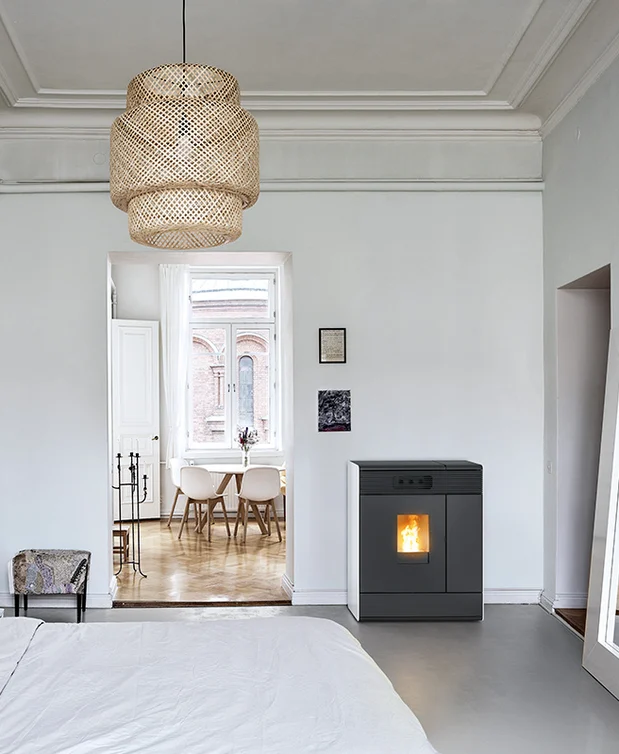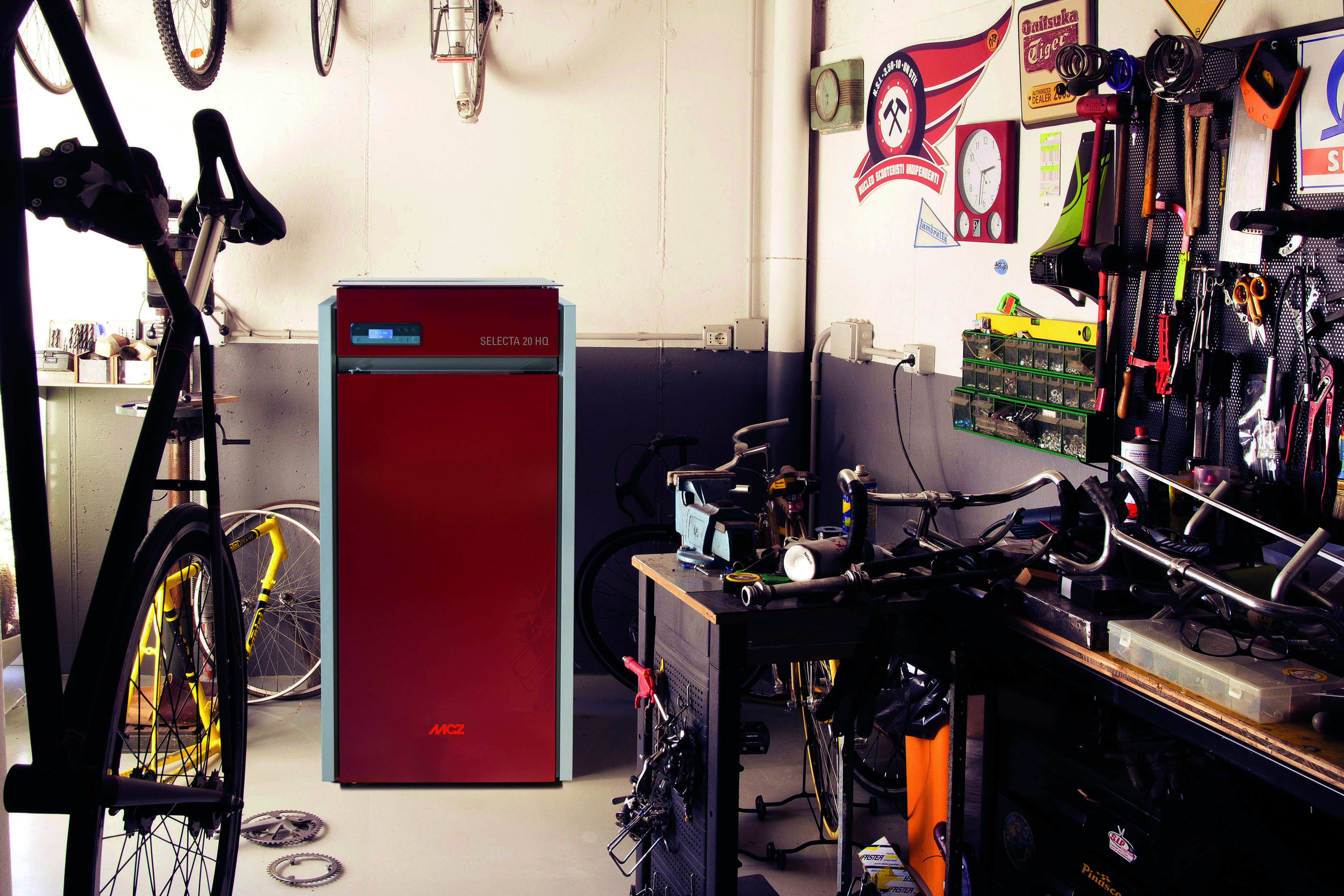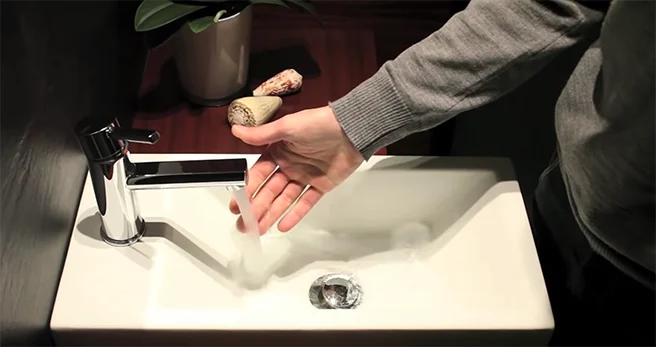HERE'S A COMPARISON OF THE ADVANTAGES AND DISADVANTAGES OF BOTH HEATING SYSTEMS
The main difference between a pellet boiler and a pellet stove lies in how they heat. While a boiler heats the water in the heating system, a stove heats the air. However, there are also stove models, called hydro stoves (or thermo stoves), that heat water just like a boiler. In this article, we’ll explain the difference between the two and help you understand which one is better for you.
WHAT ARE THE ADVANTAGES OF HYDRO STOVES AND PELLET BOILERS?
In both cases, whether with a hydro stove or a boiler, you can:
- save money compared to old methane or diesel boilers
- make use of your existing heating system, such as radiators or underfloor heating
- combine room heating with domestic hot water production
But when is it better to install one or the other?
When it comes to pellet heating, it’s impossible to say in advance which solution is objectively better — but there is a solution that’s best for you. Finding it is simple with the help of a professional for design and installation. A technician can assess the key parameters, especially your family’s energy needs, and recommend the most suitable product.
However, here are some helpful tips to choose between a hydro stove and a pellet boiler:
1. Do you have limited space?
In that case a hydro stove is more suitable than a boiler, as it takes up much less space. There are even compact models with reduced depth, ideal for installation in a hallway (see the Aki model below).

Hydro stoves usually have a stylish and well-designed appearance, so they are not hidden away but placed in a visible area of the home, like a decorative furnishing.
A pellet boiler is usually larger and requires more space, also because it must be paired with a puffer or water tank. Therefore, if you choose a boiler, you’ll need a dedicated room to install it.
Some pellet boilers come with an integrated hydraulic group and pellet hopper to save space, allowing installation in smaller technical rooms.

2. Do you also need to heat domestic hot water in winter?
If the hydro stove is powerful enough (at least 20–25 kW), the hot water produced for heating can also be used for domestic hot water. It is always recommended to combine it with a puffer or boiler, which stores the hot water produced during full operation and makes it available when needed.
The pellet boiler, due to its higher power, can heat larger amounts of water and therefore is better suited for larger families or homes with more space to heat.

Hydro stoves also generate a couple of kilowatts of heat that are released into the room where they are installed, either through natural convection or forced ventilation depending on the model. This is a big plus in winter as it directly heats the room. However, in summer, if you're using it for hot water, this can be a downside — you’ll need to keep the stove on for at least 30 minutes just to take a hot shower, which may be uncomfortable in warm weather.
For this reason, for combined heating + domestic hot water all year round, a pellet boiler is more recommended, as unlike the stove, it is not installed inside the home and can be operated without discomfort.
The most advanced pellet boilers come with a specific “summer mode” function, which prevents the three-way valve from sending hot water to the heating system. That way, even when the boiler turns on, the radiators remain cold and hot water goes only to the domestic system.
In such cases, a puffer becomes even more essential, since short and frequent summer ignitions can reduce boiler lifespan.
Do you need help figuring out which solution is right for you? Request a free consultation!


